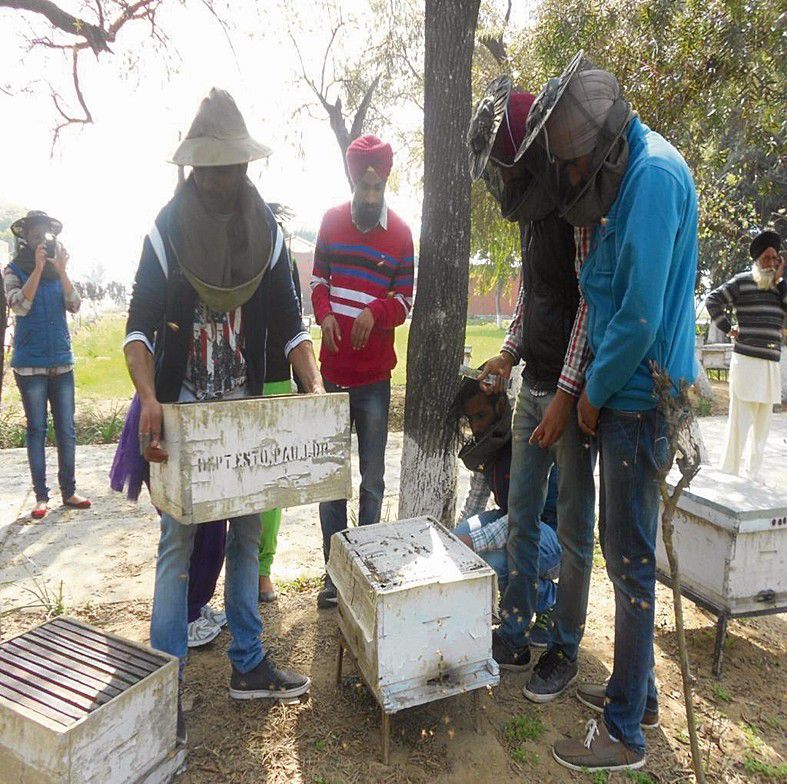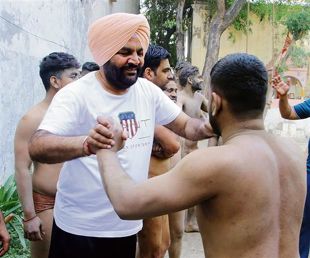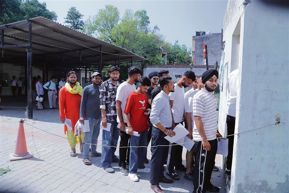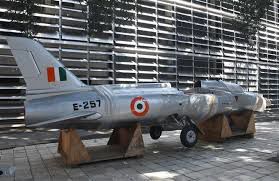
A beekeeper moves a colony to save it from the frost. TRIBUNE PHOTO
Ludhiana, January 13
Cold winds, dense fog and cloudy days have become a cause for concern for apiculturists as they have noticed a reduction in the foraging period of honey bees. The bees start foraging late in the morning and stop early in the evening because of the cold.
“Being cold-blooded insects, honey bees are unable to maintain constant body temperature in frosty conditions. They are severely affected by the temperature around them,” said Rajinder Singh, an apiculturist.
Amit Chaudhary from the department of Entomology from Punjab Agricultural University (PAU) said bee colonies should not be opened during early morning or late evening as it would lead to a sudden fall in the temperature of the bees cluster. The best time to inspect the bee colonies during winters is noon, on a sunny day. The inspection must be completed within a short period so that the bees are not exposed to the harsh conditions, he said.
A weak colony may face several problems in winters, so they must be provisioned with a sealed brood without adult bees from a strong colony, right before the onset of harsh winter. This would aid them in gaining strength when adult bees emerge out of cells. Uniting two weak colonies can be another option, he added.
“Bee colonies must be placed in areas where they can receive the maximum sunlight, although care must be taken that they are not exposed to cold wind. The colonies must be migrated to another place if such a place is not available at the present apiary,” said Bharathi Mohindru from the department.
Jaspal Singh from the same department said in the winter season, cold winds usually blow from the west, so wind-breaks should be made in the apiary by planting bushes or erecting temporary structures at one side. Cracks or gaps in the hives must be sealed with mud or tape. To minimise the effect of wind, the entrances of weak colonies should be narrowed down with mud or paper.
“At the beginning of the winter season, very weak or queen-less colonies must be united with the queen-right colonies, else they may not be able to withstand the cold. And even if they survive, they would not provide surplus honey,” he added.
Though honey bees tend to regulate their colony's temperature by making clusters, winter packing is required to facilitate the warming of their colony. A delay in providing winter packing is one of the main causes of reduced hive productivity in winter.
The night temperature in winter is usually 10-15°C lower than the day temperature, and this must be taken into account while deciding when to provide winter packing. Winter packing is of two types — inner winter packing and outer winter packing — added Chaudhary.
Join Whatsapp Channel of The Tribune for latest updates.




























